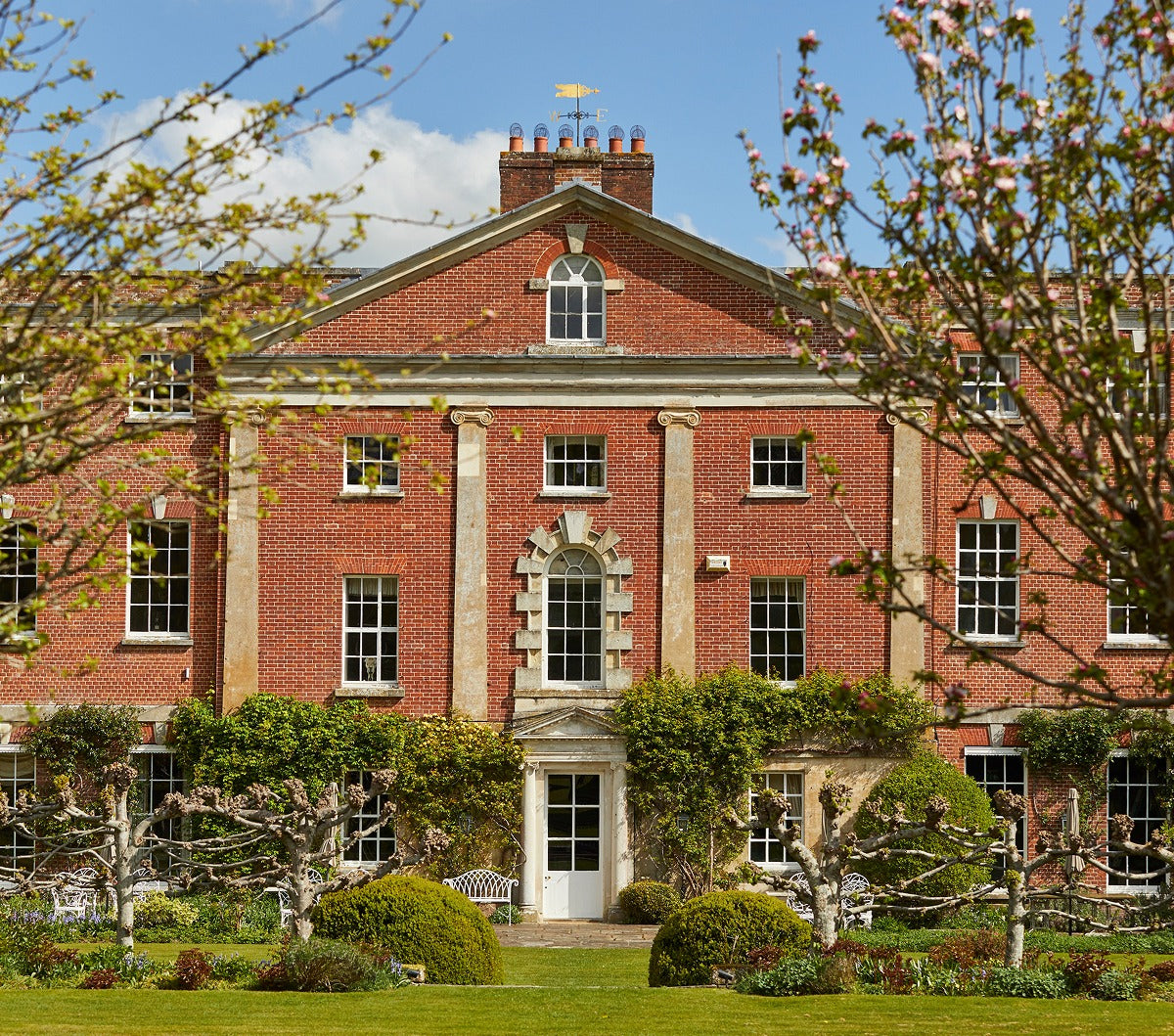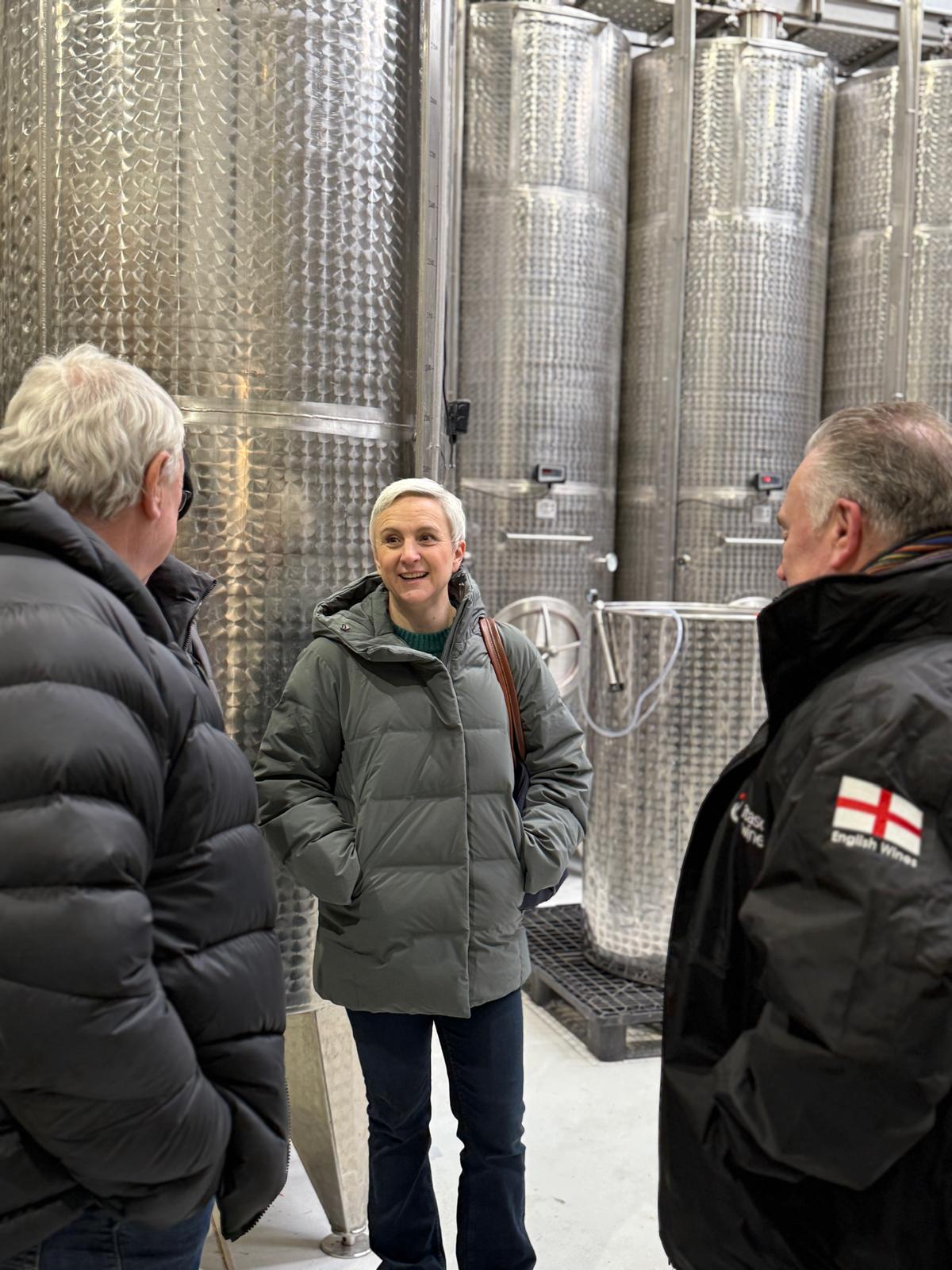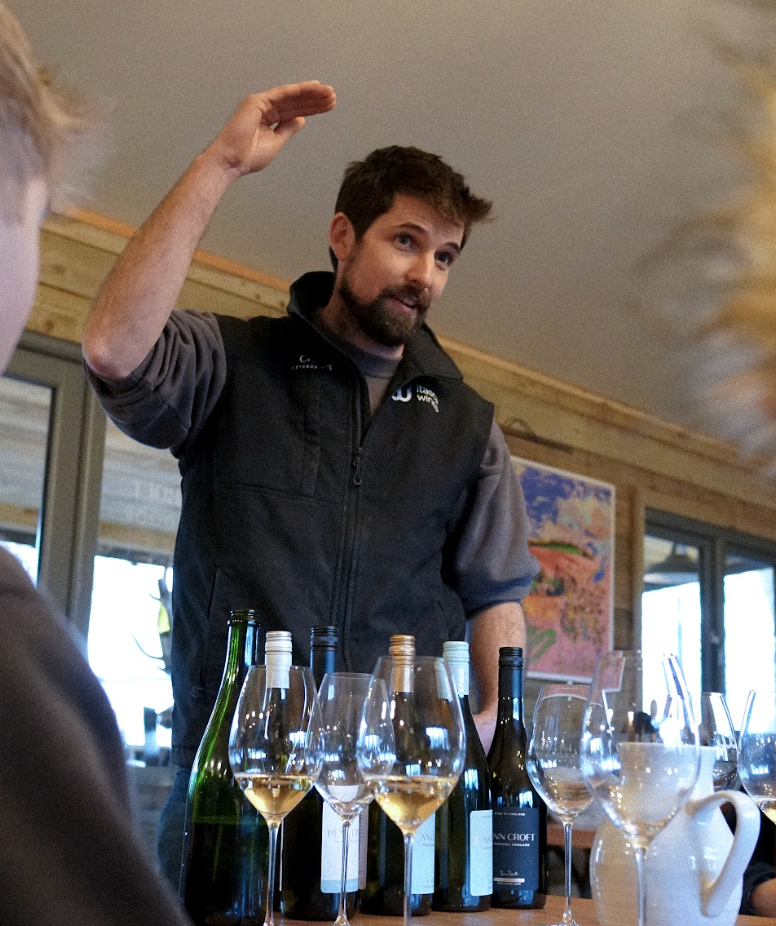We are proud to have had the following Interview and article on our very own Head Winemaker, Ben Smith featured in our local Crondall & Ewshot Parish Magazine and Village News.
Ben Smith is not only the Head Winemaker at Penn Croft Vineyard and Itasca Wines, but also a leading figure in the exciting evolution of English winemaking. Known for his profound knowledge of viticulture and unwavering dedication to craftsmanship, Ben has helped shape two of the UK’s rising stars in the wine industry. His approach is informed by sustainable practices, an eye for innovation, and a relentless pursuit of quality.
We sat down with Ben to uncover the inspirations, challenges, and triumphs that define his journey. From his favourite vintages to the art of blending, here’s what he had to share about his remarkable work.
Background and Journey
1. How did you first get into winemaking, and what inspired you to pursue it as a career?
I began working on the commercial side of the wine industry in Oxford, distributing to Michelin-starred restaurants. However, in 2012, I decided to focus on winemaking. That decision took me around the world—New Zealand, Canada, France, and the US. I returned to the UK in 2015 and took on a full-time winemaking role at Oxney Organic, the UK’s largest organic wine producer, where I spent five years. I joined Itasca in spring 2020, just as the winery was being built.
2. Do you have any mentors or experiences that shaped your winemaking philosophy?
Yes, Andrew Hedley in New Zealand. While working with him in Farningham, I learned the value of small-batch winemaking, which is central to my approach today.
3. What has been the most rewarding vintage of your career, and why?
The 2018 vintage was a pinnacle for me. I created a still Chardonnay, whilst working at Oxney Organic, that received a perfect score from a wine critic - something no other English wine has achieved. It sold out instantly, like gold dust!
Insights on Terroir and the Craft
4. What’s unique about the terroir at Penn Croft Vineyard and Itasca Wines?
At Penn Croft, we farm regeneratively - an approach we’ve been following for over 20 years, long before it became a trend. This method aligns with sustainability, prioritizing soil health and biodiversity. While we’re still learning how this affects wine quality, our wines have already garnered significant praise.
5. What does a typical harvest day look like for you?
Harvest season means long days. Much of it involves sensory analysis, tasting and evaluating grapes to make critical decisions. We also have a full lab on-site for precise data analysis, so it’s a mix of art and science.
Challenges and Technical Craftsmanship
6. What’s the most challenging aspect of winemaking in the UK?
The biggest challenge is dealing with the seasonal variability. For example, 2022 was a drought year, while 2023 was one of the wettest on record. Climate change is intensifying these swings, making adaptability key to producing consistent, high-quality wines.
7. How do you approach blending to achieve balance in your wines?
It depends on the wine’s purpose. For sparkling wines, balance is about harmony - no one element overpowering the others. For still wines, like our single-vineyard Bacchus, the focus is on creating something reflective and food-friendly. Where the wine will be consumed and its price point also influences our approach.
8. How do you balance tradition and innovation in winemaking?
Tradition is important, but only when it enhances quality. In England, we’re fortunate to have fewer restrictions than other regions, allowing us to innovate freely. For instance, we use state-of-the-art equipment alongside traditional methods like aging in French oak barrels.
9. What role does technology play in your winemaking process?
Technology is essential. Our bottling line, for example, is one of the most advanced in the world, ensuring consistency and precision. That said, some aspects of winemaking - like using oak barrels - haven’t changed for centuries.
Personal Preferences and Memorable Moments
10. What’s your favourite grape variety to work with?
Pinot Noir. It’s incredibly versatile - you can make sparkling, still reds, whites, and rosés with it.
11. Can you share a memorable experience from your winemaking journey?
While working in Australia, I encountered an Eastern Brown Snake in the vineyard - an unexpected and slightly terrifying surprise!
Philosophy and Industry Trends
12. What makes a truly exceptional wine, in your opinion?
Balance is everything. English wines are expensive to produce, so quality is non-negotiable. Our goal isn’t just to make good English wines, but wines that can compete internationally.
13. How do you stay inspired as a winemaker?
By constantly challenging myself - experimenting with new techniques, methods, and even something as simple as a new yeast strain. There’s always something new to try.
14. How do you see the English wine industry evolving?
English wine is gaining global recognition. Regions like Crouch Valley in Essex are producing outstanding still wines with ripeness levels unheard of elsewhere in the UK. It’s a thrilling time for the industry.
15. Are there any trends in winemaking that excite or concern you?
I’m excited about the rise of regions like Essex, where we source Pinot Blanc. However, I remain sceptical of trends that prioritize marketing over substance.
Sustainability and Perception
16. What misconceptions do people have about English wine?
Many still see English wine as a niche or novelty. In reality, we’re a serious player in the global wine scene, exporting to countries like France, Japan, and Canada.
Final Touches
17. What’s one thing about winemaking that would surprise people?
How much cleaning is involved! Winemaking is about 90% cleaning - it’s all about maintaining hygiene.
18. If you could open any bottle of wine, what would it be and with whom?
A truly iconic vintage of Burgundy or Bordeaux, shared with my closest friends.
19. What advice would you give to aspiring winemakers?
Talk to experienced people with good reputations, get the right advice early, and be patient. Winemaking is a long-term commitment.
20. What keeps you passionate about winemaking?
The endless possibilities. Winemaking is a blend of science and art, offering limitless opportunities for creativity.
Ben, we sincerely thank you for sharing your insights into the fascinating world of winemaking. Your dedication, skill, and passion for the craft are truly inspiring, and it’s been a privilege to gain a glimpse into the artistry and effort that happens behind the scenes. We’re especially grateful that you took the time to speak with us during one of your busiest seasons. Cheers to your continued success and the exceptional wines yet to come!


